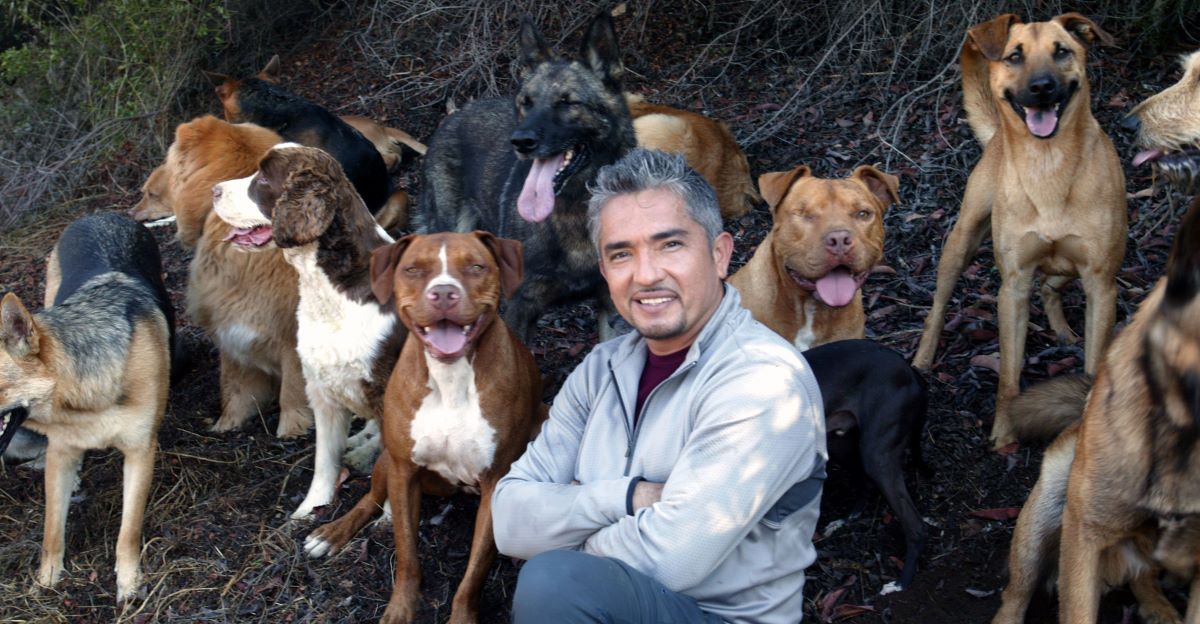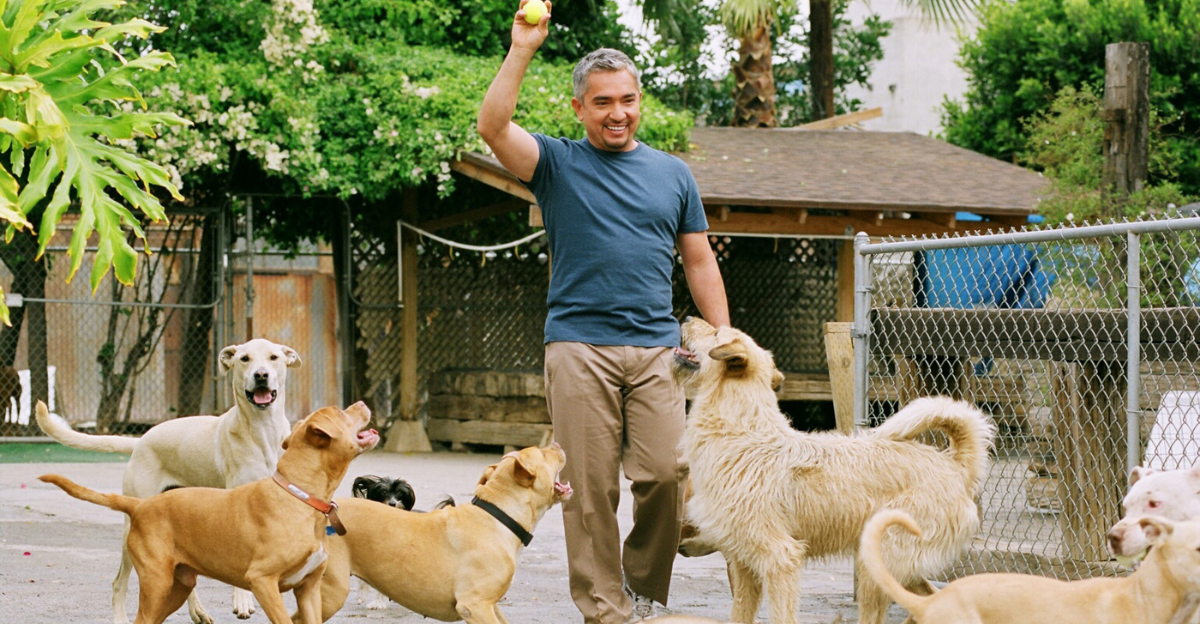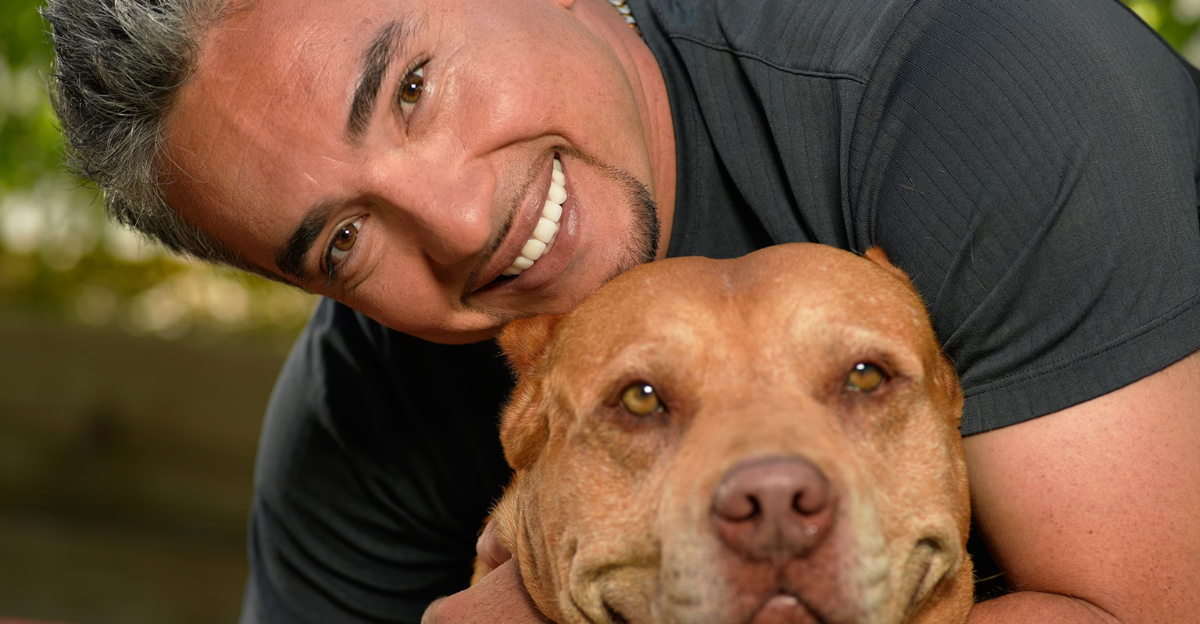
For over two decades, Cesar Millan has been the face of dog training. The “Dog Whisperer” built a global empire around pack leadership and calm, assertive energy. But in 2024? Many behaviorists say his techniques do more harm than good. What was once hailed as groundbreaking is now being called outdated, dangerous—even traumatic. So, why is the leash tightening around Millan’s legacy? Critics say it’s time we stop whispering and start rethinking how we treat man’s best friend.
Dominance Theory is Dead (Well, It Should Be)

Millan’s method hinges on “dominance theory”—the idea that dogs misbehave to assert control. But modern science has left that behind. Studies show dogs aren’t out to dominate—they’re confused, anxious, or scared. Interpreting every behavior as a power play? That’s not leadership. That’s misunderstanding your dog’s language.
Fear ≠ Respect

Millan teaches that dogs need to “submit.” But many of his techniques, like alpha rolls and leash jerks, don’t teach trust; they teach fear. A frightened dog may obey, but that’s survival, not respect. Trainers today know: fear-based compliance is fragile, and it damages the human-animal bond.
The Science Says No Thanks

A 2009 review in Applied Animal Behaviour Science linked dominance-based training to more aggression, not less. The American Veterinary Society of Animal Behavior straight-up warns against it. Why? Using intimidation might suppress a problem short term, but it doesn’t fix the root cause. And it often makes things worse.
The “Rehab” That Backfires

Millan’s famous “rehabilitations” often show dramatic turnarounds, but they rarely reveal what happens after the cameras stop rolling. Many critics argue his “quick fixes” don’t hold up. Real training takes time, nuance, and consistency. Fear might shut down a behavior, but it doesn’t teach a better one.
The Alan Titchmarsh Show Blow-Up

In 2012, UK host Alan Titchmarsh grilled Millan live on TV, calling his methods “cruel and unnecessary.” The RSPCA backed him up, warning that Cesar’s approach could cause pain, fear, and long-term damage. The backlash? A turning point. Suddenly, the Dog Whisperer was facing global scrutiny.
Positive Reinforcement Changed the Game

While Millan stuck to dominance theory, the dog training world evolved. Today’s best trainers rely on positive reinforcement—rewarding good behavior instead of punishing bad. It’s backed by science, loved by dogs, and far more effective. In 2024, alpha rolls feel like dial-up in a Wi-Fi world.
AVSAB Isn’t Subtle About It

The American Veterinary Society of Animal Behavior has been crystal clear: dominance training is outdated and dangerous. They advocate for humane, evidence-based methods—no leash pops, no intimidation, no force. The vibe? Train with compassion, not coercion. Fear doesn’t build a well-behaved dog. It builds trauma.
Mixed Signals in Pop Culture

Millan’s influence runs deep—reruns, TikToks, Netflix specials. But as public awareness grows, so does the backlash. Many new pet owners feel torn: trust the famous guy on TV or listen to science-backed experts? Spoiler: Flash doesn’t equal facts. And dogs aren’t props for reality drama.
Dogs Deserve Better in 2024

We know better now. Dogs aren’t rebels, they’re communicators. When they act out, it’s not defiance—it’s stress, fear, and confusion. Today’s trainers focus on empathy, patience, and understanding. The Cesar-style “corrections” don’t fit our modern understanding of animal welfare. Bottom line? Kindness works. Force doesn’t.
Time to Retire the Whisper

Cesar Millan shaped an era of dog training. But that era needs to end. What helped once may now be harming pets and people alike. Dogs don’t need dominance, they need communication, consistency, and care. The Dog Whisperer built a legacy. Now, it’s time to build something better.
Explore more of our trending stories and hit Follow to keep them coming to your feed!

Don’t miss out on more stories like this! Hit the Follow button at the top of this article to stay updated with the latest news. Share your thoughts in the comments—we’d love to hear from you!







